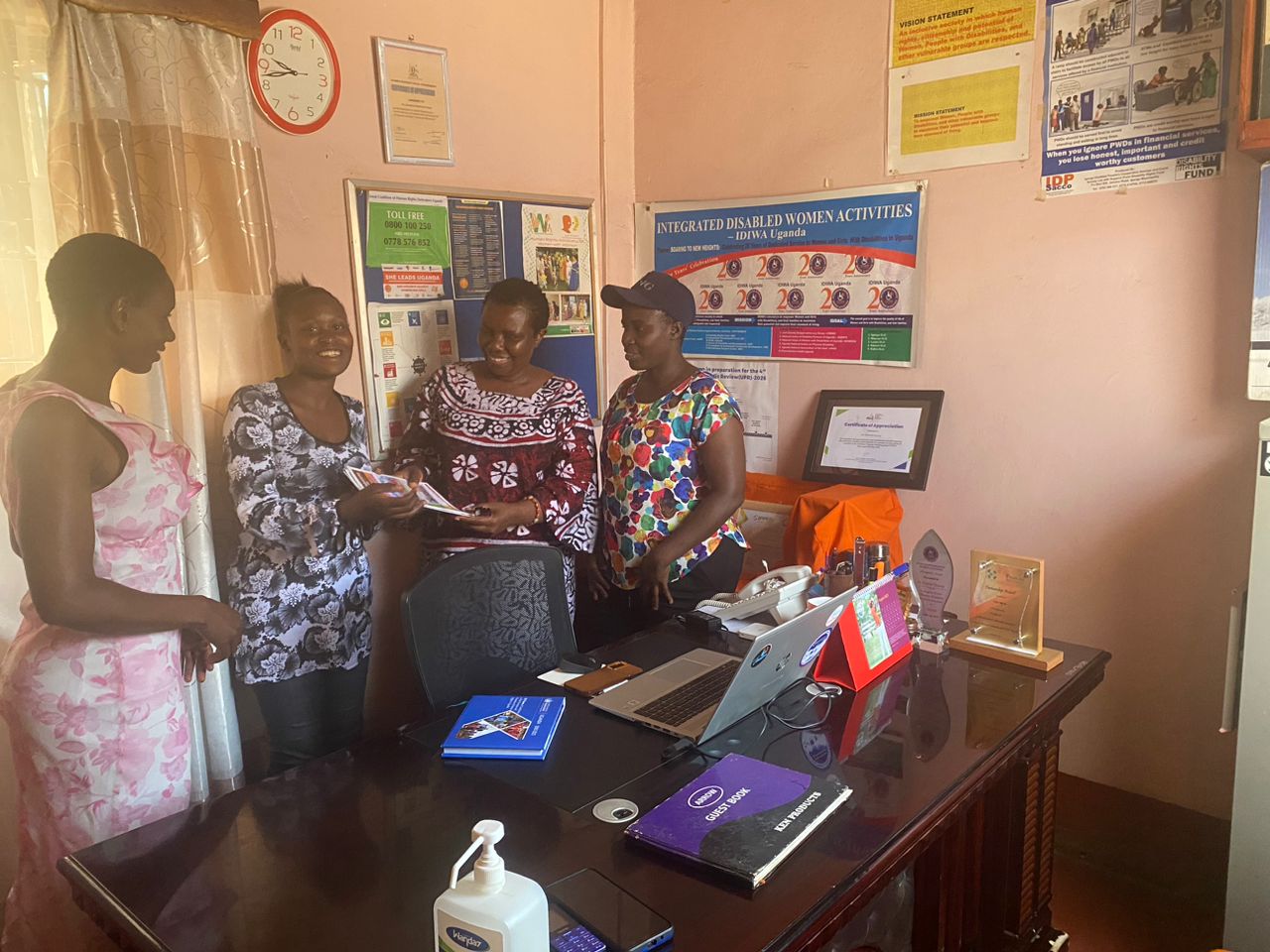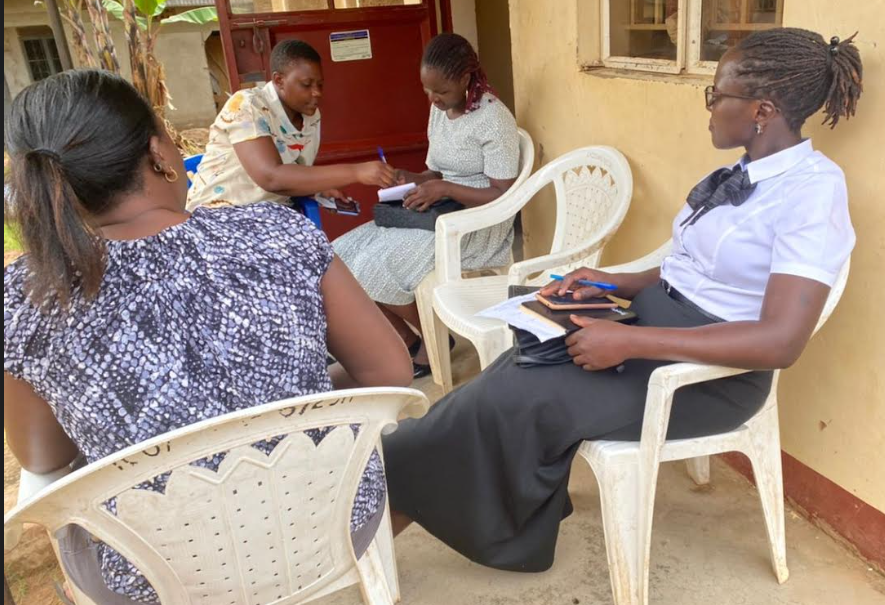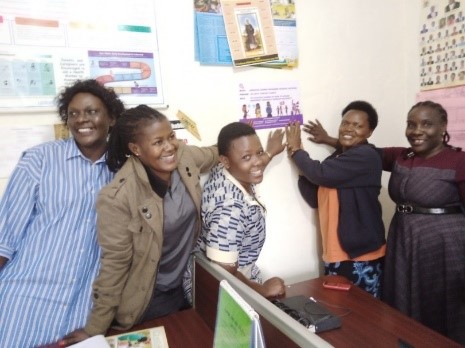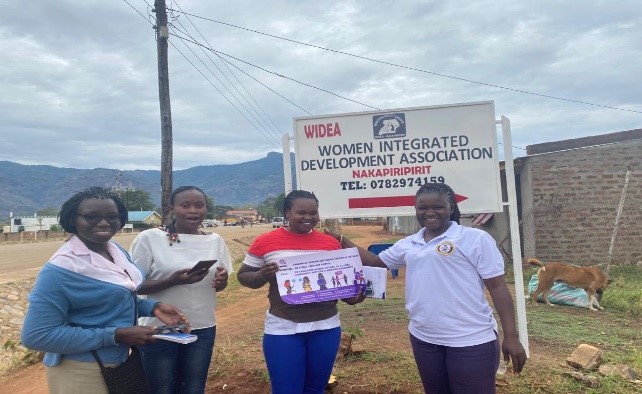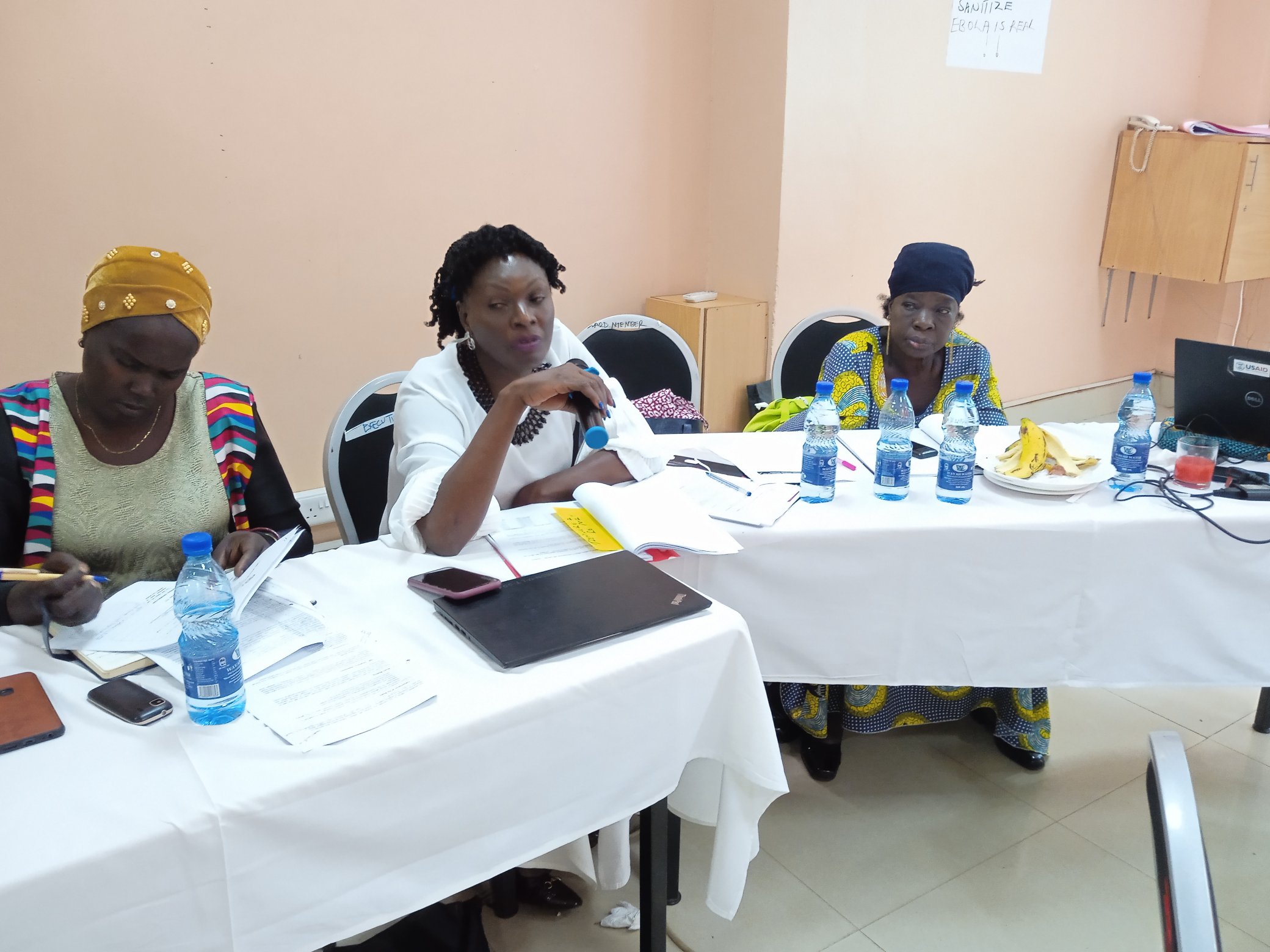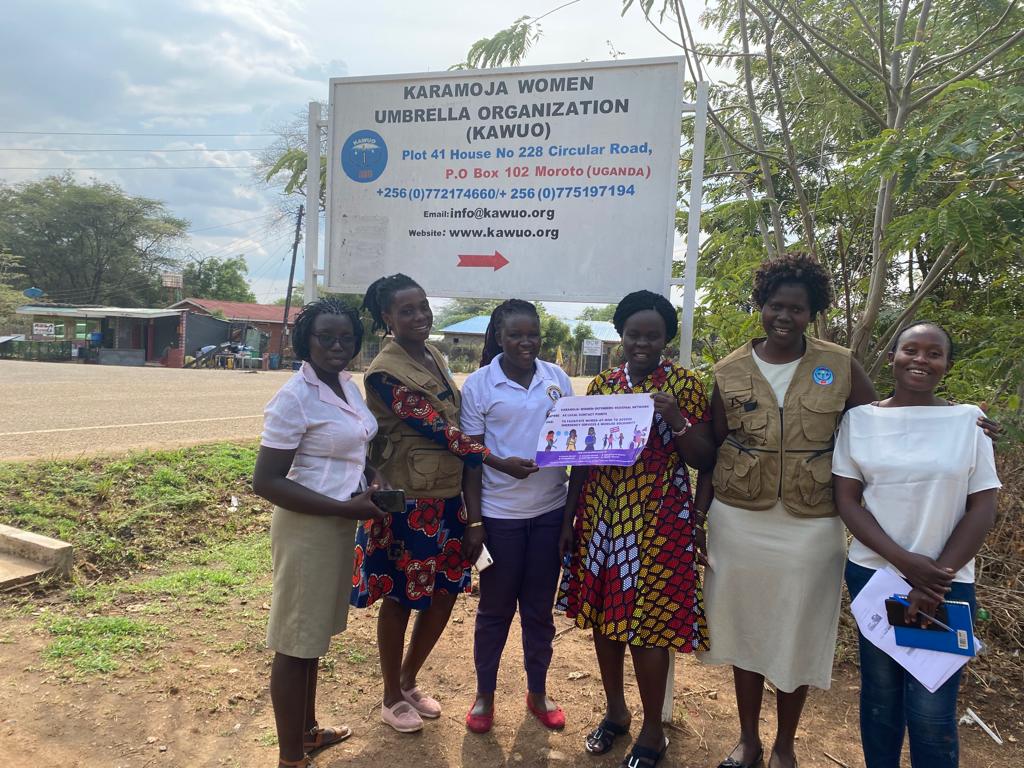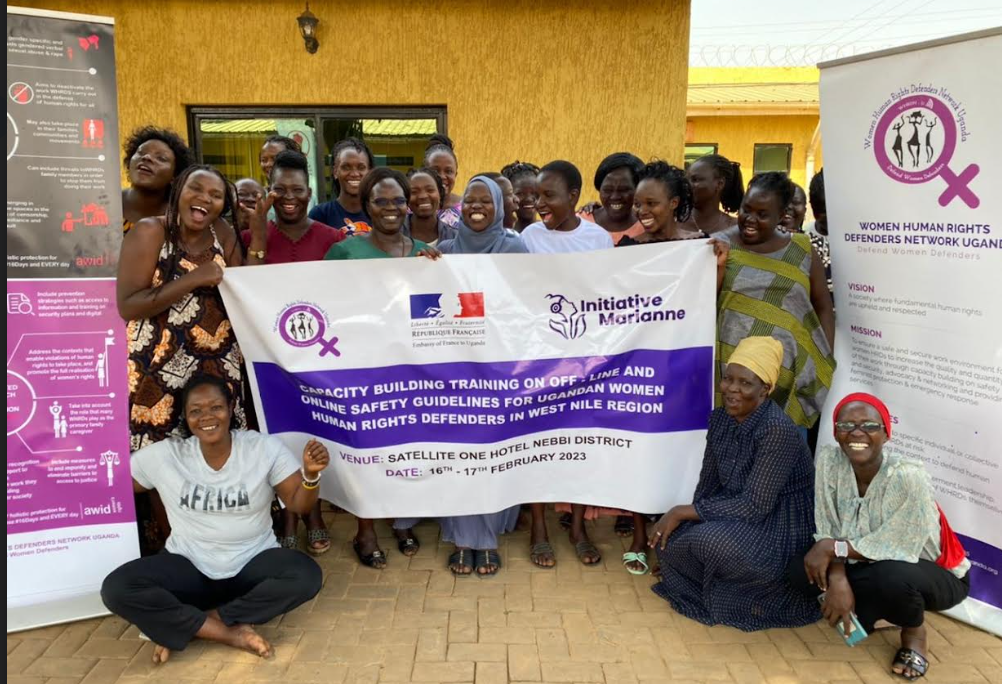Empowering Voices: Report on a fact-finding mission in Bukedi
The Women Human Rights Defenders Network Uganda(WHRDN-U), conducted a fact-finding mission and solidarity visits to grassroots women human rights defenders from the Busoga subregion on the 24th, 25th, to 26th of July 2023 in Mbale, Kween, Tororo/Malaba, and Katakwi districts working on different kinds of human rights work in their communities like environmental rights, Gender-Based Violence, child labor rice plantations, land rights, LGBQ and sex workers rights.
Objectives of the visit were to;
1) To identify facts on contributions of WHRDs and verify allegations of attacks
2) To Identify the challenges faced WHRDs during their human rights work and express solidarity
3) To Identify WHRDs at risk who could have been attacked or threatened because of their human rights work.
4) To Identify possible recommendations that could create a safer working environment for WHRDs to continue doing human rights work in the region.
Methodology:
The methodology of the Finding mission was carried out through a combination of interviews. The team also visited offices and the areas where women human rights defenders conduct their activities to witness first-hand the challenges they face in their struggle for human rights.
Voices of WHRD from Mbale
- On 24th July 2023, the WHRDN-UGANDA team visited Mungoma Priscilla, a WHRD promoting the rights of the girl child and transpersons, health rights in her organization, Friends of the Marginalized in Mbale district.
- Priscila shared her experience of attacks and threats she is facing. She narrated that due to the passing of the anti-homosexuality act, she has been facing criticism, intimidation, and threats of killing her from the community and was arrested by a police officer that said, ‘’This is the girl that works with them’’ because she was working with her partner who belonged to the gay community in the organization.
- Priscilla emphasized that she promotes the healthy rights for women and girls by sensitizing them about the benefits of using birth control methods; because of her work, she was attacked by the community, who accused her that ‘’ She is refusing our girls and wives from giving birth.’’

Mungoma Priscila a WHRD from Mbale and team from WHRDN-U
Voices of Bennet WHRDs
- On the 24th of July 2023, the team from the women human rights defender network Uganda met Sange Jackline and Kusoru Viola WHRDs from the Kween district, and they shared the threats, attacks, and challenges they are facing as WHRDs for the Bukedi sub-region; Currently, some Benet indigenous peoples are living in the temporary settlement that the government gave them after evictions from Mount Elgon natural pack in 2008. Some Benet people and some temporary settlements were granted permanent residential settlements through the Uganda Wild Life Authority. With no clear boundaries for the temporary residential settlements. This is causing problems for the Bennet people living in the temporary settlements, as they are being abused for encroaching on the gazetted land. For instance, the Bennet are arrested, their family are victims of gunshots, and some families have lost them.
- We, the Bennet indigenous groups, believe that Mount Elgon National pack is our ancestral pack and have the right to access the Elgon Forest land to get firewood medicinal herbs and graze our animals.As WHRDs from our organization, called the Bennet Lobby, we continue to advocate for our rights through dialogues between us, the Bennet natives, and the Resident District Commissioner (RDCs), UWA – so that government elevates the status of temporary residential settlements to permanent residential settlement for some of the Bennet people.
- They are tortured, raped, sexually harassed, beaten, and the Uganda World Life Authority destroys their animals and crops.
- As WHRDs, we are seen as inciting violence in the community, our work is criminalized, and we are surveilled by unknown people who attend our community sensitization meetings.
- On 1st May 2023 in Kwopi sub-county, the UWA officials arrested my neighbors, and their animals (cows, goats, and sheep) were taken. These Victims of this incident called me, Jackie Sange (as their defender), to conduct a mediation meeting between UWA and the victims; the UWA staff said they do not want me in the discussion, saying I was the problem. On 3rd/May/2023. When the UWA was carrying out an exercise for evacuating the Bennet people from the gazetted land, they destroyed houses, took away our animals, and threatened me, Jackie, and other defenders that ‘’if anyone tampers with the evacuation exercise, they would be arrested’.

Sange Jackline and Kusuru Viola WHRDs from Kween district and the team from WHRDN-U.
Stories of WHRDs from Tororo
- On 25th July 2023, the WHRDNU team also visited three words from Tororo district on the Ayoo Juliet, and Amongin Juliet from Milikiti sub-county,
- Athieno Annet, Aiweny Mary, Topista, Anyako, Apadet Sylvia Lear Atiyar Environmental WHRDS in Tororo District.
- Juliet Ayoo, a Woman HRD promoting land rights, introduced Women HRDS Athieno Annet, Aiweny Mary, Topista Anyako, Apadet Sylvia, and Lear Atiyar prompting environment rights from Osukuru United Women Network to the district environment officer in Tororo district to share the challenges they find while promoting and sensitizing to the community about the importance of planting trees and the dangers of cutting trees to burn charcoal and also to seek support whenever they attacked. The words shared that they are always in mind when they come out to stop people from cutting trees by saying that ‘’ we cannot stop cutting trees because this where we survive by cutting trees and burning charcoal. ’The environmental officer encouraged words to continue to protect and sensitize their communities about planting more trees to conserve the environment and pledged to support them by giving them more seedlings to plant in August 2023.

Tororo Women Environmental Defenders

Tororo Women Environmental Defenders in advocacy meeting with the environment and natural resource department at the district headquarters in Tororo district.
Voices of WHRDs Fighting Child Labour in Tororo
- The WHRDN- visited WHRD defending human rights for young children from child labour in rice plantations in Milikiti sub county Tororo district Amongin Juliet. She stated that while planting rice and harvesting rice, instead of taking the children to school, the parents take the children in the rice field to plant, and they also use the children to scare away birds from eating the rice during harvest. So, when she involves the Local Council (LC) and parents of the children to convince them to take their children back to school, they say to her,‘’ These are our children and not yours.’’
- Amongin furthermore stated that she gets insulted for advocating for the rights of young children, telling her that ‘’it is that one who is attached to human rights spoiling our children.’’Amongin stated that because of her human rights work, she is at risk, and when she visits some homes in her community moves with her bottle of water, and, she has been labeled and called names like ‘’Fire brigade.’’

- Namaganda Lydia sex work Woman Human Rights Defender from Malaba promotes the health care rights for sex workers, and LBQ stated that due to the passing of an anti-homosexuality bill, it has been challenging for the LBQ community to access health care for fear of being arrested. Hence, she narrated that she has to travel at night, which is risky to provide health care services to the LBQ community.


Namaganda Lydia WHRD from Malaba in Tororo district
Successes
The fact-finding mission of the Bukedi sub-region was a successful activity because of the following;
1) The WHRDNU team identified WHRDs that were at risk because of the human rights work they do in their communities to receive support.
2) The words from Tororo district met with the district environment office. They shared the challenges they face when sensitizing the community about the dangers of cutting trees to burn charcoal, and they requested support in case they are attacked.
3) The environment officer at the district agreed to support and provide protection to the words promoting environment conservation in case they are attacked.
4) The environmental officer also promised to give the women human rights defenders more seedlings in August to plant more trees.
